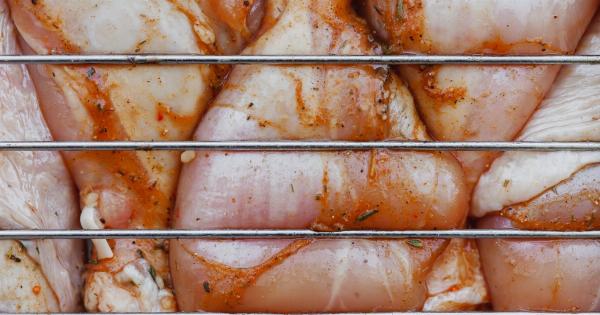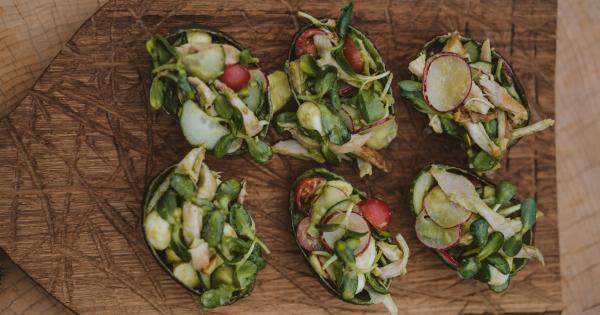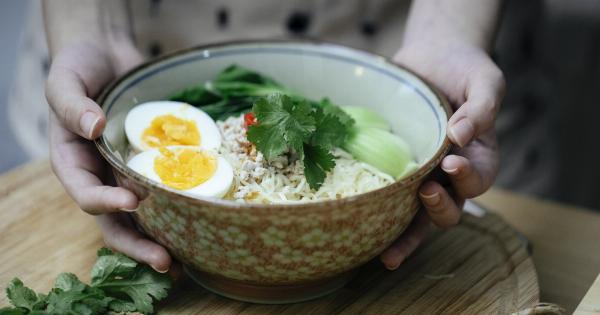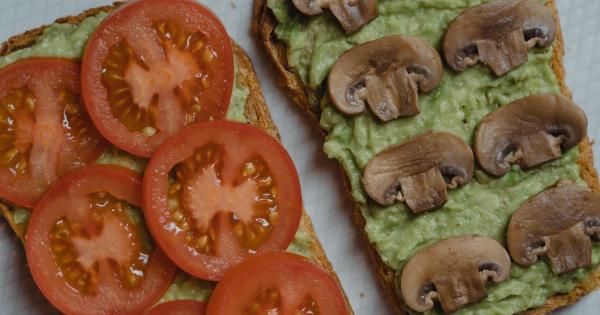As pet owners, we always want our furry friends to be healthy and happy. One way to ensure their well-being is by maintaining a strong immune system. A robust immune system can help fight off illnesses and keep your pet in optimal health.
While there are various factors that contribute to a pet’s immune health, a well-balanced diet plays a crucial role. By including certain foods in their diet, you can boost their immune system and support their overall vitality. Here are some top healthy foods to consider:.
1. Blueberries
Blueberries are packed with antioxidants, which can help protect the immune system from damage caused by free radicals. They are also rich in vitamin C, vitamin K, and fiber, making them a great addition to your pet’s diet.
You can offer blueberries as a treat or mix them in with their regular food.
2. Broccoli
Broccoli is a nutrient-dense vegetable that offers numerous health benefits for pets. It contains vitamins A, C, and K, along with essential minerals like calcium and folate.
Broccoli can be steamed lightly and chopped into small pieces to make it easier for your pet to digest.
3. Salmon
Salmon is an excellent source of omega-3 fatty acids, which are essential for a healthy immune system. Omega-3 fatty acids help reduce inflammation and support overall well-being.
Make sure the salmon is thoroughly cooked and free from any seasoning or additives before serving it to your pet.
4. Pumpkin
Pumpkin is a highly nutritious food for pets. It is rich in fiber, antioxidants, and important vitamins like A, C, and E. The fiber in pumpkin can aid digestion and promote a healthy gut, which is closely linked to a strong immune system.
You can offer your pet plain canned pumpkin (without spices or added sugar) or consider making homemade pumpkin treats.
5. Yogurt
Yogurt is a fantastic source of probiotics, which are beneficial bacteria that support a healthy gut. A balanced gut microbiome contributes to a strong immune system as it helps regulate the body’s response to pathogens.
Make sure to choose plain yogurt without any added sweeteners or artificial flavors, as those can be harmful to pets.
6. Spinach
Spinach is packed with vitamins, minerals, and antioxidants that can enhance your pet’s immune system. It contains vitamin C, vitamin E, beta-carotene, and fiber.
Steam or blanch the spinach before adding it to your pet’s meals, as raw spinach may be difficult for them to digest.
7. Carrots
Carrots are not only a low-calorie snack for pets, but they are also packed with nutrients. They contain beta-carotene, vitamin A, vitamin K, and fiber.
Carrots can be given as crunchy treats or lightly steamed and chopped into smaller pieces for easier consumption.
8. Chicken
Chicken is an excellent source of lean protein for pets. Protein is vital for a strong immune system, as it plays a crucial role in building and repairing tissues.
Make sure the chicken is cooked thoroughly and remove any bones before serving it to your pet.
9. Sweet Potatoes
Sweet potatoes are rich in vitamins A and C, as well as fiber and antioxidants. These nutrients can help support your pet’s immune system and overall health.
You can bake or steam sweet potatoes and offer them as a treat or mash them and mix them into their regular food.
10. Apples
Apples are a great source of fiber and vitamin C. However, make sure to remove the seeds and core before giving them to your pet, as the seeds contain small amounts of cyanide, which can be harmful.
Slice the apples into bite-sized pieces and offer them as a healthy snack.
Incorporating these healthy foods into your pet’s diet can contribute to a stronger immune system, improved overall health, and increased vitality.
Remember to introduce new foods gradually, monitor your pet’s response, and consult your veterinarian if you have any concerns or questions.






























